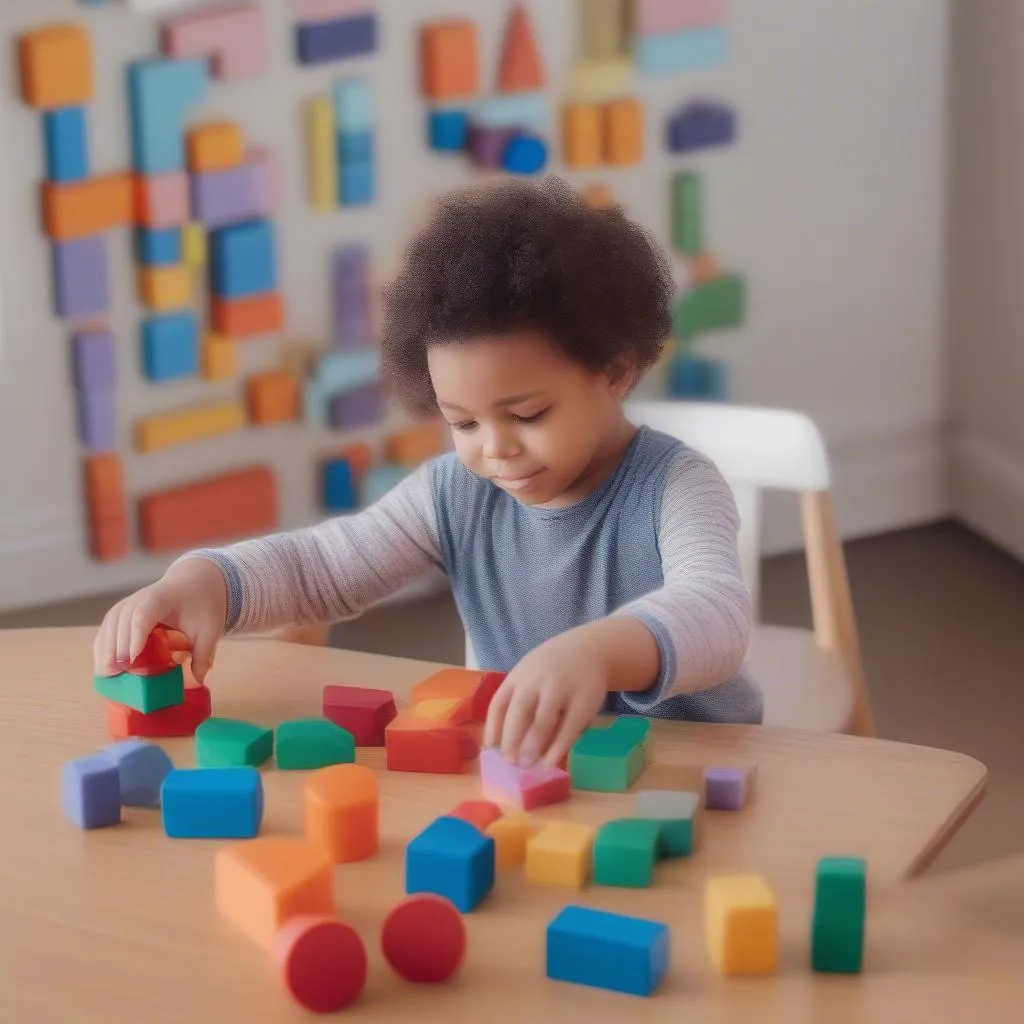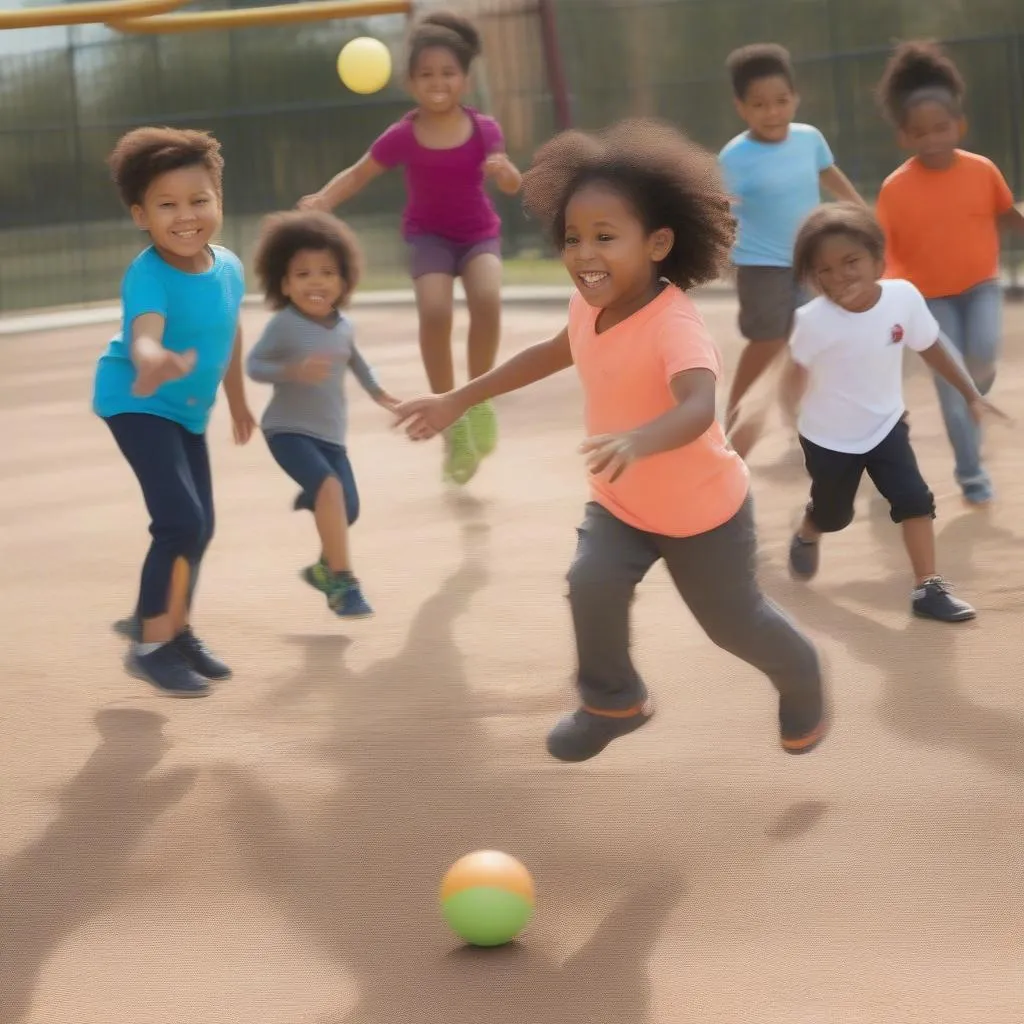“Train children from their young age,” an old proverb emphasizes the importance of early childhood education. For preschoolers, learning is not just about acquiring knowledge but also about experiencing, exploring, playing, and developing holistically. Well-designed preschool activities help children practice necessary skills, develop thinking, imagination, and creativity.
Why are Preschool Activities Important?
Like small seeds that need nurturing to sprout, preschoolers need suitable activities to develop comprehensively. Preschool activities act as “nutrients” that help children:
- Develop Intellect: Activities help children train logical thinking, problem-solving skills, memory, and concentration.
- Enhance Communication Skills: Language and communication activities help children become more confident in communicating, expressing thoughts and emotions clearly.
- Improve Motor Skills: Physical exercises and movement activities help children develop physically, improve health, hand-eye coordination, and dexterity.
- Cultivate a Love for Learning: When exposed to suitable and creative activities, children will feel excited and love learning, forming a solid foundation for future education.
Popular Types of Preschool Activities
 Worksheet about shapes and colors for preschoolers
Worksheet about shapes and colors for preschoolers
Cognitive Activities
These activities help children practice observation, discrimination, comparison, sequencing, and classification skills. These are basic but crucial skills, laying the groundwork for later learning.
- Shape Activities: Recognizing basic shapes like circles, squares, triangles, rectangles through shape-sorting games, drawing, coloring, etc.
- Color Activities: Recognizing basic colors like red, yellow, blue, purple through color-sorting games, coloring, matching games, etc.
- Number Activities: Recognizing numbers from 1 to 10, counting objects, comparing quantities, etc.
- Language Activities: Practicing communication skills, expressing thoughts and emotions, learning new words, storytelling, etc.
Motor Skill Activities
 Preschoolers doing physical exercises outdoors
Preschoolers doing physical exercises outdoors
These activities help children develop physically, improve health, hand-eye coordination, dexterity, and rhythm.
- Gross Motor Activities: Running, jumping, climbing, throwing balls, kicking balls, etc.
- Fine Motor Activities: Puzzle solving, coloring, drawing, cutting and pasting, playing with playdough, etc.
- Rhythmic Exercises: Dancing to music, practicing simple movements, participating in fun physical activities, etc.
Creative Activities
These activities help children develop imagination, creativity, critical thinking, and problem-solving skills.
- Drawing: Creative drawing, drawing from samples, drawing based on themes, etc.
- Building Blocks: Building blocks from samples, creative building, constructing models, etc.
- Creative Play: Role-playing, storytelling, creating scenarios, etc.
- Arts: Singing, dancing, acting, etc.
Important Notes When Choosing Preschool Activities
- Age-Appropriateness: Preschoolers have different developmental stages. Therefore, when choosing activities for children, it is necessary to ensure they are suitable for the child’s age and learning ability.
- Play-Based Learning: Preschool activities should be designed to be playful and entertaining, avoiding pressure and creating excitement for children.
- Multi-Sensory Engagement: Use various forms and methods to attract children’s attention, helping them absorb knowledge effectively.
- Create a Fun Learning Environment: It is necessary to create a fun, comfortable, safe learning environment with adequate tools and toys suitable to support children’s learning process.
Frequently Asked Questions about Preschool Activities
Q: “How do I know which activities are suitable for my child?”
A: You can consult teachers, early childhood education experts, or search for information on reputable websites. In addition, observe and monitor your child to choose activities that suit their interests, abilities, and developmental needs.
Q: “How long should I have my child do activities each day?”
A: The duration of activities for preschoolers should be adjusted to suit the child’s age, learning ability, and health. According to renowned early childhood education expert Mr. Nguyen Van A (author of the book “Early Childhood Education – Secrets to Success”), a suitable time is from 15 to 30 minutes per day.
Q: “How do I make my child interested in doing activities?”
A: Create a fun and comfortable learning environment for your child, encouraging them to participate in learning activities voluntarily. Turn learning into games and engaging activities to attract children’s attention.
Q: “What resources can I refer to for preschool activities?”
A: You can refer to reputable early childhood education websites such as http://tuoitho.edu.vn/cac-bai-tap-cho-tre-mam-non/, http://tuoitho.edu.vn/bai-tap-ve-gio-cho-tre-mam-non/, http://tuoitho.edu.vn/bai-tap-the-duc-buoi-sang-cho-tre-mam-non/ or search for information on websites specializing in early childhood education.
Conclusion
“As you sow, so shall you reap,” investing in children’s education from a young age will bring tremendous results. Suitable preschool activities not only help children develop comprehensively but also create a solid foundation for future learning and life. Spend time, dedication, and love to accompany your child on their journey of discovery and growth!
Leave your comments below so we can learn more about your questions about preschool activities. You can also explore other articles about early childhood education on our website.